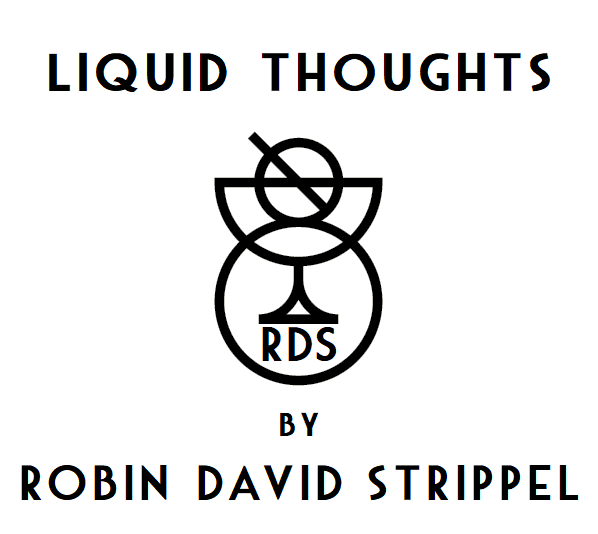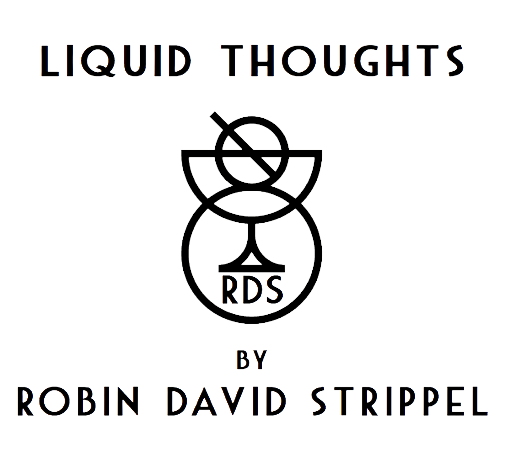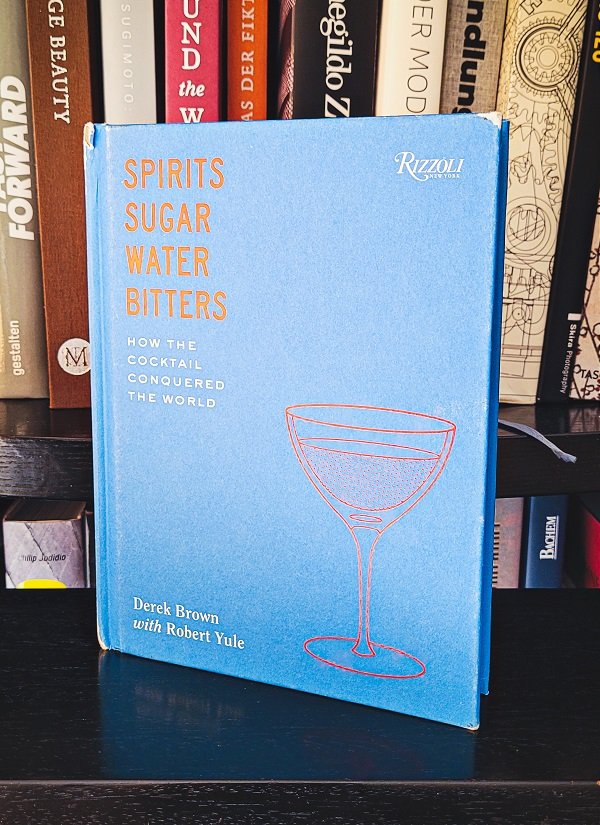Spirit, Sugar, Water, Bitters - Derek Brown, Robert Yule
Spirits, Sugar, Water, Bitters:
How the Cocktail Conquered the World
Derek Brown, Robert Yule / 176 Pages / May 2014
I am always fascinated how high the average quota of bartenders seems to me, who emit a certain unintentional arrogance/self importance in only 4-5 pages of their introduction. Psychologists and other qualified people who know more about this than I can debate the reasons for this, I just wanted to mention that. This can take various forms, there is the type, which must accommodate each individual - in their opinion - achievement of their life in the few pages, so that it reads like a long CV, there are those (particularly annoying), which try to point out that they are in some way special, crazy and not average (sometimes including their closest bartender friends). A lot of times he or she already got the culinary lectures with just 4 or 5 years of age from their family, I don't even count that in. Mr. Brown, after a brief foreword by the official 10th Archivist of the United States (more on that below), recounts, among other things, his 2009 visit to the White House, where he was allowed to mix drinks for the President and his senior staff.
On this occasion, he was introduced to President Obama as "The mixologist", whereupon the president asked whether this was not simply a bartender (here I really had to laugh). According to Mr. Brown's statement, he himself was visibly disappointed by this first reaction, so that the president even (allegedly) cheered him up by saying that a bartender is basically like a coach, a manager or even a president too. So far, so corny. The two sentences afterwards, however, are my personal highlight of the book. Obama, cheering up Mr. Brown, concludes his comparison of bartender and president in an exceedingly friendly manner:
"Everyone thinks they can do it, but they can't, can they?”
After which Brown wrote (at least he didn't actually say it out loud):
"No, they can't. So much as I admire iconic cocktail writer David Embury's sentiment that anyone can make great cocktails, or as much as I jest about the tiny fame associated with craft bartenders and their drinks, I have some truly serious things to say.”
I'll leave it at that, without further commenting.
I then drew my personal conclusion regarding the whole thing after a short excursion & research on Derek Brown, during which I at several points had a bright smile on my face. Here is his (obviously self-written) Wikipedia article, remember that Obama anecdote:
https://en.wikipedia.org/wiki/Derek_Brown_(mixologist)
Where do I start? Between the following three things, I just can't pick my personal highlight:
The picture of the article at the top right
The "Mixologist" behind his name in the title (if there are multiple personalities with the same name, that's how they are distinguished), instead of using "bartender" as is used in the article and almost all other bartenders I know, at least I have never seen that on Wiki.
The warning by Wikipedia at the top: "This article contains content that is written like an advertisement. Please help improve it […]”
From the pages about the more recent history
Back to the question of why the official chief archivist of the United States is writing a foreword for a cocktail book: The book springs from Brown's work as "chief spirits advisor" for the National Archives Foundation, in which capacity he also gives seminars and the like on the history of cocktails and their social significance. Because of this, as he writes himself, he sometimes humorously refers to himself as the "highest ranking bartender in the U.S. government."
And again, I'll just leave this here without commenting…
But let's finally get to the rest of the book, first off: this is actually less of a cocktail or recipe book and more of a history book. Although the use of this term is not really appropriate here, more about that later.
Derek Brown tries here in 10 chapters and around 150 pages to summarize the history of mixed drinks, between the chapters are always 4 (neo-)classic recipes and 1 recipe by himself, these are chronologically roughly matching the discussed topic in those chapters.
These chapters are again divided into small sections, almost every page has its own section with a subtitle, often anecdotes that work without any context. I would guess this is a hint that this is his first book, he wrote a lot for magazines and maybe some of the texts were actually taken directly from his lectures or other, shorter articles. His writing style is definitely easy to read, fresh, perhaps a bit too intentionally casual, but enjoyable. However, it sometimes lacks a really continuous thread, especially some suitable transitions, sometimes it virtually jumps from anecdote to anecdote, albeit chronologically in the same context. Besides the non-existent footnotes and thus lacking comprehensible evidence, this is the main reason why this cannot be an actual non-fiction book in the field of history. At least he lists the sources used in the appendix.
Nevertheless, I have to say that his style of writing and the short, subdivided texts help to go through the book easily and quickly. As if someone would hold a deliberately entertaining lecture, full of sometimes more, sometimes less interesting little stories, think of TED Talks.
There are classic, general descriptions, especially in the "pre-history" of the cocktail and the first "official" cocktails, of course some prohibition and mafia stories, later excursions to 007 and Sex & The City with the Cosmopolitan. What I find particularly interesting is actually his short texts or the selection of topics in the postmodern era, the - as he calls it - "Platinum Age" or as others call it, the "Bar Renaissance". Many sub-topics there are simply important bars, brands or even bar equipment stores (Cocktail Kingdom from Japan), which is a nice way of honoring their role in these new times for the bar & drink industry.
In the end, a very nice "Spirited Timeline of American History" is included, stretching two double pages in a very small font from the "prehistoric times" to 2015 important dates are listed. Here Mr. Brown is again good for a laugh (and not the positive kind), besides historically major events in spirits & bar history (and partly also general history like the moon landing to give a temporal context), all 3 last entries from 2009-2014 are about him, opens bar xy, becomes Chief Spirits Advisor, opens bar z.
I really don't know if this is supposed to be funny?
1) No one cares in the historical context (if at all, then maybe that such an "official" post was awarded in the first place).
2) There would have actually been important/significant events concerning important bars or spirits and bar culture events from 2009-2014.
2 examples of (neo)classical recipes
There is (unfortunately) not much to say about the recipes, they are just really on the one hand the absolute classics, 40 pieces in total, including a few by today's standards questionable drinks, which are mentioned because of the historical significance (think Harvey Wallbanger). On the other hand, his own 10 drinks are mostly very simple (in the case of his drink for the National Archive, for example) and even in the better cases not "special" enough to generally recommend the book in any way or form for anyone interested in actual recipes.
Conclusion:
As critical as some parts may have sounded here: Anyone who wants to have or give away an entertaining, summarized history of mixed alcoholic beverages (incl. cocktails), or in particular is looking for a bunch of nice, historical anecdotes for the next cocktail party, can definitely grab this one without hesitation. Modern-minimalistic in design, solidly produced, but without any historical illustrations or (drink-)photos. If you are looking for recipes however, every single other book in my bar library offers more interesting stuff there.
One should also be aware that a certain writing style, self-confident, to use the positive phrase, is used and it is also certainly not a history book concerning the actual academic meaning.




